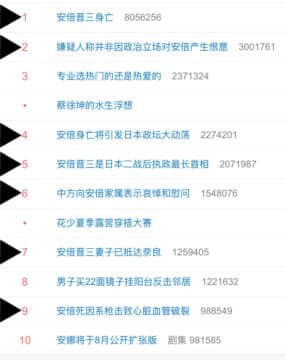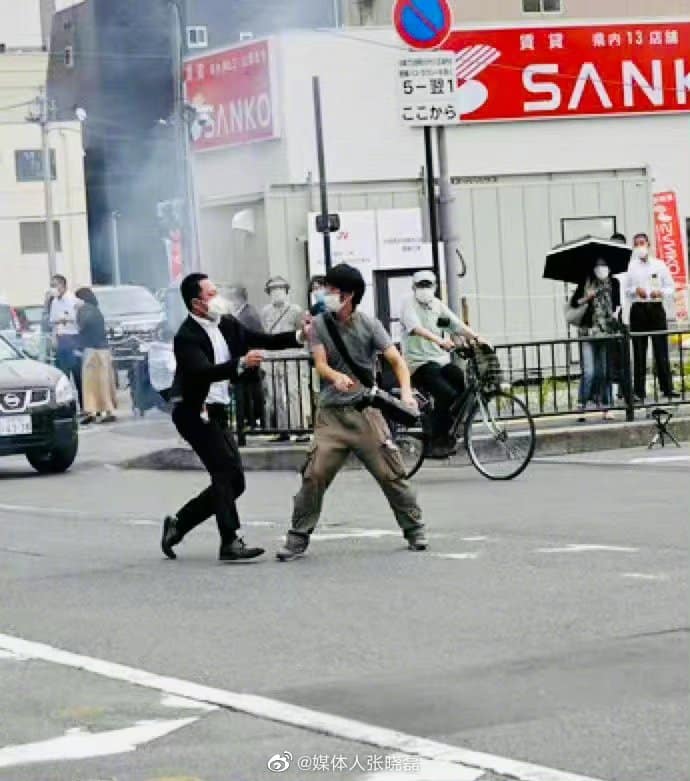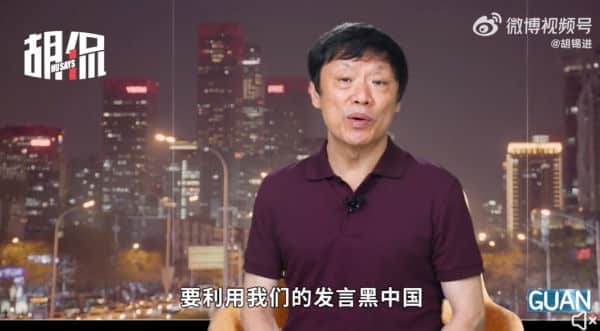On Chinese social media platform Weibo, the death of Japan’s former Prime Minister Shinzo Abe and related topics have been dominating top trending lists. By Friday night, seven of the ten top trending Weibo topics were about Shinzo Abe, with the topic “Abe Shinzo Passes Away” (#安倍晋三身亡#) receiving over 1,4 billion views on the platform on Friday. Other related hashtags also received millions of views.

Seven of the top ten trending topics on Weibo at time of writing are relating to the death of Shinzo Abe.
The number two topic on Friday was related to the suspect and what his motivation for the shooting might have been. Suspect Tetsuya Yamagami (山上徹也) is a 41-year-old Nara resident and former Japanese Self-Defense Force official.
Yamagami reportedly joined the Maritime Self Defense Forces for approximately three years during the 2002-2005 period. During this time, the suspect also received annual live-fire exercise training (#枪杀安倍嫌犯接受过实弹射击训练#).
Yamagami, who was unemployed since May of this year, reportedly stated he “did not hate Abe because of his political stance” (#嫌疑人称并非因政治立场对安倍产生恨意#) but was “dissatisfied with Abe’s attitude outside of his political ideas.” The weapon used by the suspect was allegedly a homemade firearm.

After several international media reports had come out on Friday regarding Chinese social media responses to Abe’s death (see our What’s on Weibo report here), the influential Global Times commentator Hu Xijin (胡锡进) posted a video on Weibo on late Friday night as part of his Hu Says commentary series, addressing this topic.
Hu wrote: “After Abe was assassinated, some external forces took advantage of our netizens’ straightforward expressions to cast China in a bad light, and their malicious manipulation is yet again running at full speed. Let’s be vigilant about this and be aware at all times that they are using our online statements to look for material to make China look bad.”

Hu Xijin in his video.
Hu refers to various online reports and tweets about the fact that many Chinese netizens had little sympathy or even expressed joy over the death of Japan’s former prime minister, with some calling the shooter a ‘hero.’ As reported here, a seeming majority of Weibo users commenting on the attack on Abe made it seem like it was a positive thing instead of an evil act.
In his Hu Says video, Hu Xijin comments on the difference in how Shinzo Abe is perceived in the West and in China, where he is blamed for the deterioration in Sino-Japanese relations due to his rightwing nationalist and pro-military stance, including his visits to the controversial Yasukuni Shrine during and after his time in office.
Hu Xijin expressed that it was “normal” for ordinary netizens to speak their minds about Shinzo Abe, just as foreign social media users also speak their minds whenever something happens in China. Hu condemned how some foreign media allegedly used these public sentiments as if it was the Chinese standard, smearing China in doing so.
Hu himself had previously issued a statement on Weibo (where he has 24 million followers) in which he expressed grievances about what had happened to Abe, and he also shared this post on his Twitter (474K followers).
I feel sympathy for Abe. I publicly expressed my sympathy in a post today on Chinese social media Weibo. The post garnered 86,000 likes in just over an hour and is one of the hottest posts about Abe's incident on the Chinese social media. pic.twitter.com/BB7kPGlsau
— Hu Xijin 胡锡进 (@HuXijin_GT) July 8, 2022
“We need to stay vigilant,” Hu said: “that there are now some foreign forces who are using what we post to show China in a bad light.” Hu also added that ordinary Chinese people should be able to straightforwardly express how they feel about international affairs without their views being interpreted and magnified as if they were the official diplomatic stance on the matter.
“Don’t they also worship Yasukuni and interfere in the Taiwan issue without considering our feelings?” one top comment said, with others saying: “The comments shouldn’t serve anyone, this is just how netizens are.”
“It doesn’t matter what we do or say, they’ll always find ways to cast China in a bad light anyway,” another commenter wrote.
“We’re people, not robots, we’ll express what we feel. If Japan had invaded them at the time, how would they feel?”
Some people apparently cared more about other things: “Hu, it’s so late, why are you still posting and not sleeping yet?!”
Also read: Anti-Japanese Sentiments on Weibo after News of Shinzo Abe Getting Shot in Nara
Also read: Chinese Reporter Cries during Live Broadcast Covering Attack on Shinzo Abe
By Manya Koetse
Get the story behind the hashtag. Subscribe to What’s on Weibo here to receive our weekly newsletter and get access to our latest articles:
Spotted a mistake or want to add something? Please let us know in comments below or email us. First-time commenters, please be patient – we will have to manually approve your comment before it appears.
©2022 Whatsonweibo. All rights reserved. Do not reproduce our content without permission – you can contact us at info@whatsonweibo.com.
The post Discussing Shinzo Abe’s Death on Weibo and Foreign Media ‘Maliciously’ Covering It appeared first on What's on Weibo.